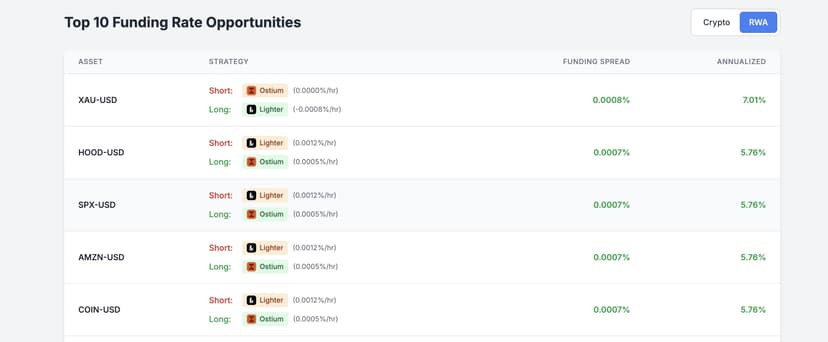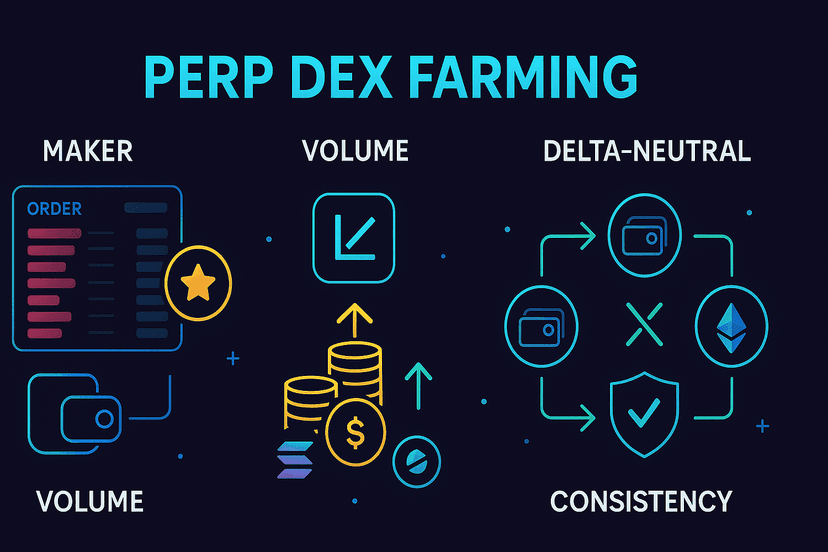How to Choose the Right Crypto Exchange
Factors to consider when selecting a cryptocurrency exchange that fits your specific needs and experience level.

Selecting the right cryptocurrency exchange is a crucial decision that can significantly impact your trading experience, security, and investment outcomes. This guide will help you navigate the factors to consider when choosing an exchange that best fits your needs.
Understanding Different Types of Exchanges
Before diving into selection criteria, it's important to understand the different types of cryptocurrency exchanges available:
Centralized Exchanges (CEX)
Centralized exchanges like Binance, ByBit, MEXC, and OKX are operated by companies that facilitate the trading of cryptocurrencies. They act as intermediaries between buyers and sellers.
Advantages:
- User-friendly interfaces
- Higher liquidity
- Customer support
- Fiat on/off ramps (ability to deposit/withdraw traditional currency)
- Often offer additional services (staking, lending, etc.)
Disadvantages:
- Require KYC (Know Your Customer) verification
- Control your private keys (you don't fully own your assets)
- Potential target for hackers
- May have withdrawal limits
Decentralized Exchanges (DEX)
Decentralized exchanges like Uniswap, dYdX, and PancakeSwap operate without a central authority, using smart contracts to facilitate trades directly between users.
Advantages:
- No KYC requirements in most cases
- You maintain control of your private keys
- Greater privacy
- Access to a wider range of tokens
Disadvantages:
- Usually more complex to use
- May have lower liquidity for some assets
- Limited or no fiat on/off ramps
- Potentially higher transaction fees (especially on Ethereum)
Key Factors to Consider When Choosing an Exchange
1. Security
Security should be your top priority when selecting an exchange.
Look for:
- Track record: How has the exchange handled security incidents in the past?
- Insurance funds: Does the exchange maintain an insurance fund to cover potential losses?
- Cold storage: What percentage of assets is kept in offline cold storage?
- Two-factor authentication (2FA): Is 2FA available and encouraged?
- Regular security audits: Does the exchange undergo regular security assessments?
- Regulatory compliance: Is the exchange compliant with relevant regulations?
2. Fees
Different exchanges have different fee structures that can significantly impact your trading profitability.
Common fee types:
- Trading fees: Maker/taker fees for placing and filling orders
- Deposit fees: Charges for depositing funds
- Withdrawal fees: Costs to withdraw cryptocurrencies or fiat
- Conversion fees: Costs to convert between currencies
Tips:
- Look beyond the advertised trading fees and consider the full cost structure
- Check if the exchange offers fee discounts for high-volume trading or for holding their native token
- Be aware of withdrawal fees, which can be fixed amounts regardless of transaction size
3. Available Cryptocurrencies
Exchanges vary widely in the number and types of cryptocurrencies they support.
Consider:
- Does the exchange list the specific cryptocurrencies you're interested in trading?
- How frequently does the exchange add new tokens?
- Does the exchange support the blockchain networks you want to use?
4. Liquidity
Liquidity refers to how easily you can buy or sell an asset without affecting its price.
Why it matters:
- Higher liquidity = tighter spreads (smaller difference between buy and sell prices)
- Higher liquidity = less price slippage (change in price between order placement and execution)
- Higher liquidity = easier to execute large orders without significant price impact
How to assess:
- Check 24-hour trading volumes for the specific trading pairs you're interested in
- Look at the order book depth for those pairs
- Consider the number of active traders on the platform
5. User Interface and Experience
The platform's ease of use is particularly important for beginners.
Evaluate:
- Is the interface intuitive and easy to navigate?
- Are there mobile apps available?
- Does the platform offer different interfaces for beginners and advanced traders?
- Are there educational resources available?
- How responsive and helpful is the customer support?
6. Geographic Restrictions
Not all exchanges are available worldwide, and some features may be restricted in certain regions.
Check:
- Is the exchange available in your country?
- Are all features accessible to users in your region?
- Are there specific regulatory requirements for users in your location?
7. Deposit and Withdrawal Methods
The available payment methods can significantly impact your experience, especially when first buying crypto or cashing out.
Look for:
- Supported fiat currencies
- Bank transfer options
- Credit/debit card support
- Payment app integrations (PayPal, etc.)
- P2P trading options
- Withdrawal time frames and limits
8. Advanced Features
If you plan to go beyond basic buying and selling, check if the exchange offers advanced trading capabilities.
Features to consider:
- Margin trading: Trading with borrowed funds
- Futures contracts: Agreements to buy or sell assets at predetermined future prices
- Options: Contracts that give the right, but not obligation, to trade at a specific price
- Staking: Earning rewards by locking up assets
- Lending: Earning interest by lending your crypto to others
- NFT marketplaces: Platforms for buying and selling non-fungible tokens
Exchange Comparison for Different User Types
For Beginners
Priorities:
- Simple, intuitive interface
- Strong educational resources
- Responsive customer support
- Basic trading features
- Fiat on/off ramps
Recommended exchanges:
- Coinbase
- Binance
- OKX
- Kraken
For Active Traders
Priorities:
- Low trading fees
- High liquidity
- Advanced chart tools
- API access
- Multiple order types
Recommended exchanges:
- Binance
- ByBit
- MEXC
- FTX
For Privacy-Focused Users
Priorities:
- Minimal KYC requirements
- No personal information needed
- Decentralized structure
Recommended exchanges:
- Decentralized exchanges (DEXs) like Uniswap, dYdX
- P2P platforms like Bisq, Hodl Hodl
For Institutional Investors
Priorities:
- Regulatory compliance
- High security standards
- OTC (over-the-counter) trading desks
- Insurance coverage
- API integration
Recommended exchanges:
- Coinbase Prime
- Gemini
- Kraken
- Bitstamp
Red Flags to Watch Out For
Be cautious of exchanges that exhibit these warning signs:
- Lack of transparency about team members, company location, or security practices
- Unrealistic promises or guaranteed returns
- Poor or non-existent customer support
- Negative reviews focusing on withdrawal problems or account freezes
- No clear regulatory compliance or frequently changing jurisdictions
- Extremely high returns on staking or lending products (if it sounds too good to be true, it probably is)
- Pressure to recruit others (potential Ponzi scheme)
Steps to Test a New Exchange
Before committing significant funds to a new exchange:
- Research thoroughly - read reviews, check social media feedback, and verify regulatory status
- Start small - deposit a minimal amount to test the platform
- Test the withdrawal process - confirm you can actually withdraw your funds
- Contact customer support - assess their responsiveness and helpfulness
- Try different features - explore various aspects of the platform that you plan to use
Final Thoughts
The "right" exchange varies based on your individual needs, location, experience level, and trading goals. Many experienced cryptocurrency users maintain accounts on multiple exchanges to leverage the strengths of each platform.
Remember that the cryptocurrency exchange landscape is constantly evolving, with new platforms emerging and existing ones updating their features and policies. Regularly reassess whether your chosen exchanges still meet your needs as your trading strategies develop and the market matures.
Above all, prioritize security and only use exchanges that implement robust security measures to protect your assets.


